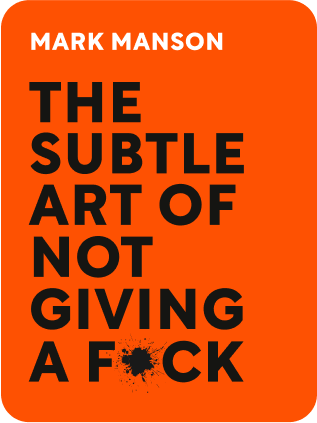

This article is an excerpt from the Shortform book guide to "The Subtle Art of Not Giving a F*ck" by Mark Manson. Shortform has the world's best summaries and analyses of books you should be reading.
Like this article? Sign up for a free trial here .
Why do so many people today feel entitled? Why is feeling entitled such a problem in society?
The entitlement epidemic started in the 1960s when psychologists concluded that people who feel entitled produce better work and commit fewer crimes. However, they couldn’t have predicted how many mental health problems would arise due to feeling entitled.
Keep reading to learn how the entitlement epidemic began and why entitlement is so detrimental.
Why We Feel Entitled
A feeling of entitlement is rampant today because many people have bought into cultural and social media messages about what it takes to be happy — which actually makes them more miserable and unable to cope with challenges in life.
Feeling entitled can take one of two forms:
- You believe you’re entitled to feel good all the time.
- You believe you’re exceptional or different. Rules don’t apply to you, or you deserve special attention or treatment. You can feel different in a self-aggrandizing way — for instance, I’m always the smartest person in the room. Or you can feel different in a negative way, as a response to trauma — I’ve suffered more than anyone else has and deserve pity, or I’m damaged beyond repair.
How Entitlement Started
Our entitlement epidemic is rooted in a trend that began in the 1960s, when the self-esteem/exceptionalism philosophy spread through schools, churches and business development seminars. The focus became feeling good about yourself rather than trying, failing, learning, and accomplishing things.
In the sixties, researchers concluded that people who felt good about themselves tended to perform better and caused fewer problems for society. Psychologists and policymakers began promoting self-esteem in the hope it would lead to such things as better academic performance, less crime, greater employment and job performance.
In the next decade self-esteem approaches were adopted by teachers, parents, policymakers, and therapists, and were integrated by schools.
The results included such ills as grade inflation and participation awards. Business and motivational speakers taught that everyone could be successful. Church leaders taught that their members were special in God’s eyes and destined for greatness.
This has led to a lot of entitled behavior and has produced delusional people like a guy that the author of The Subtle Art of Not Giving a F*ck calls Jimmy. Jimmy had myriad business ventures, which he bragged about nonstop. But he lacked results to back up his talk. In reality, he was a screw-up — but he felt good about himself. He discounted anyone who questioned him as being jealous of his success, and those who rejected his business proposals as “missing out” on a great opportunity. He had great self-confidence — he believed his own spin — but he never actually accomplished much.
Technology is another contributor to the entitlement epidemic. While educating and keeping us more connected, it seems to be exacerbating feelings of entitlement. Although we have access to unlimited information, technology makes it easy for us to focus only on information that makes us feel good. We feel increasingly feel entitled to be protected from anything that makes us uncomfortable. The more freedom we have to voice our opinions, the more some of us want to avoid or eliminate contrary views.
Why Feeling Entitled is a Problem
Entitlement is a problem because:
- It keeps you from growing and learning. We need to experience and learn from failure and challenges if we are to become successful adults. When you feel entitled, you skip this step.
- You feel entitled to rewards you didn’t earn. Like Jimmy, you convince yourself you’re doing great things when you’re not. Your unwarranted self-confidence can attract others by rubbing off on them for a while. Ultimately, though, you’re focused on yourself, often to the detriment of others.
- At the extreme, entitled people are self-aggrandizing — if something good happens to them they believe it’s because they’re great; if something bad happens it’s because they’ve been treated badly (it’s not their fault). They do whatever they feel is necessary to maintain their status, including abusing others.
- You don’t recognize your flaws and therefore can’t improve yourself. You pursue increasing affirmation and escalate your denial, but eventually, your house of cards falls and you face a painful reality that you’re nowhere near where you wanted to be.
The real gauge of a person’s self-esteem is how they feel about their flaws and bad experiences, not how they feel about their positive experiences.
If you have genuine self-worth as opposed to baseless self-esteem you recognize your flaws (for instance, I’m not good with money), and work to fix them.
Trauma May Lead to Feeling Entitled
Another factor that can lead to feeling entitled is having experienced trauma in your life.
It develops this way:
- You experience trauma and feel helpless to solve your problems.
- You feel there is something wrong with you.
- You feel your problems are unique and therefore you’re different from others. Different rules must apply to you. You feel entitled to special attention or treatment.
- The more painful the trauma, the more entitlement you feel.
- You may overcompensate to prove your value and worth, through such things as unhealthy relationships, drinking, sex, and trampling others’ feelings. You may feel entitled to do and say whatever you want, then try to justify your actions.
This kind of entitlement stems from the belief that you’re terrible and everyone else is great, or that you’re great and everyone else is terrible. Either way, you feel unique and deserving of special treatment. You may alternate between these feelings, up one day and down the next. Both approaches to life are selfish.
People who feel they are perpetual victims may overreact emotionally to many things in life, or make selfish demands of others to protect their feelings.
- Colleges are seeing more students who demand they remove material from the curriculum or remove books from the library that they find upsetting. Speakers are banned and professors are reprimanded if they offend anyone.
- More students are experiencing extreme stress over typical things that happen in college life, such problems with roommates or failing grades.
The thing to realize is that your problems really aren’t that unique — millions of others have had traumatic experiences. Accepting this is a necessary step toward emotional health.

———End of Preview———
Like what you just read? Read the rest of the world's best book summary and analysis of Mark Manson's "The Subtle Art of Not Giving a F*ck" at Shortform .
Here's what you'll find in our full The Subtle Art of Not Giving a F*ck summary :
- How to clarify what's important to you (and not just what you think should be important)
- Why it's okay for things to not always go well in life
- Why you need to care about fewer things






